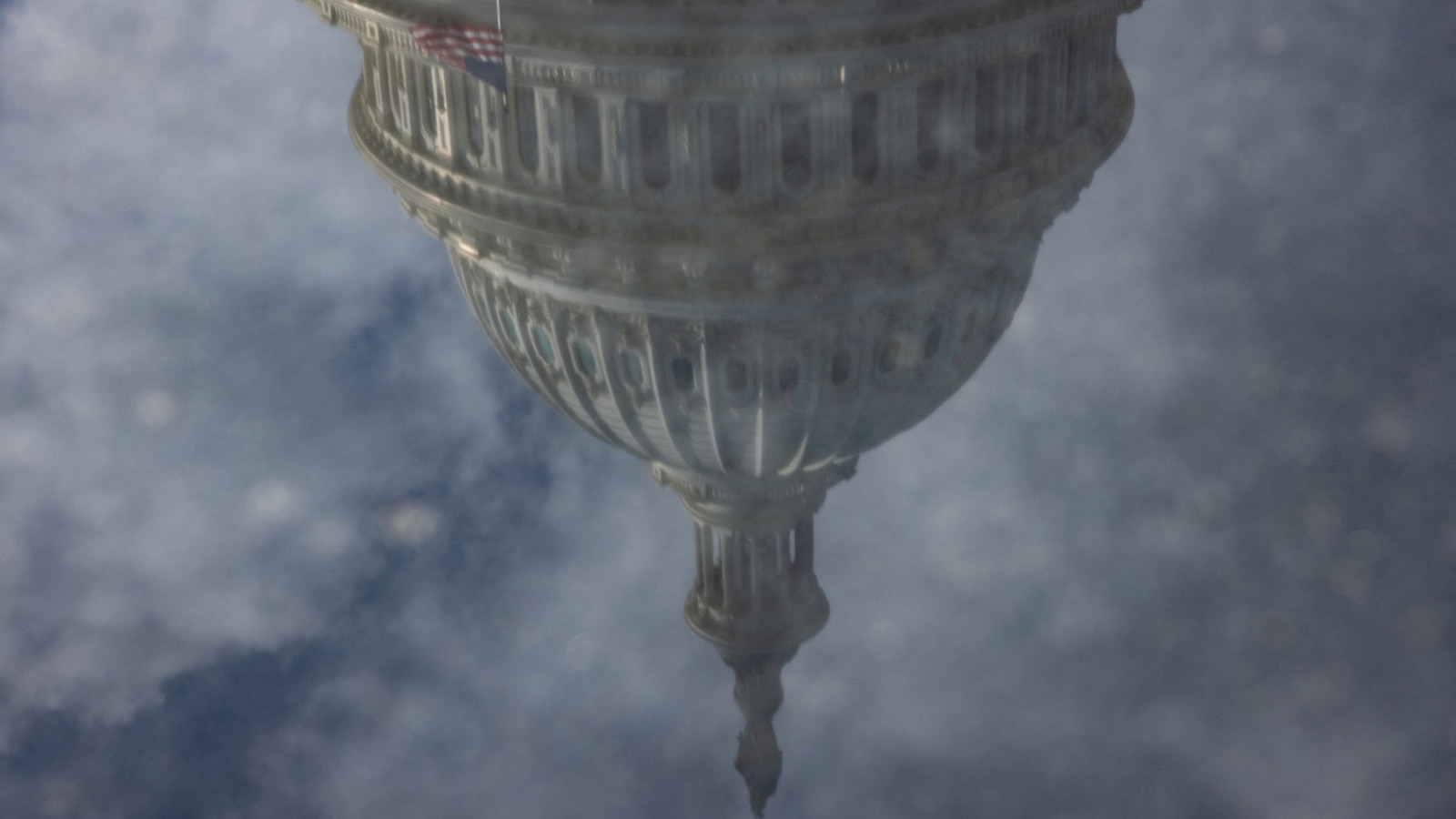This week’s dysfunction over federal government spending and a possible government shutdown is the latest in a series of conflicts between Republicans and Democrats on Capitol Hill and the White House over budget priorities.
However, this latest dilemma has been made more complicated not only by the presence of President-elect Donald Trump but also by billionaire Elon Musk.
“Any member of the House or Senate who votes for this outrageous spending bill deserves to be voted out in 2 years!” posted Musk, who slammed Congress for “government overspending,” on X on Wednesday.
The crisis stems from Congress’ duty under the U.S. Constitution to appropriate funds for federal programs, a sticking point between the parties that have fought over where the dollars go.

The U.S Capitol is reflected in a puddle on Capitol Hill in Washington, Dec. 19, 2024.
Anna Rose Layden/Reuters
There have been 10 shutdowns in U.S. history, half of which have taken place in the last 29 years. Sticking points that have led to those shutdowns have included education funding, the Affordable Care Act and immigration reform.
Hundreds of thousands of federal workers were furloughed, and many services, such as the National Parks Service, were shut down during these periods.
The last shutdown was the longest in history, taking place between Dec. 22, 2018, and Jan. 25, 2019.
In that shutdown, Congress was divided over Trump’s push to spend more money on his border wall. In the end, the Democratic-controlled House was able to pass a funding plan that did not include the former president’s request.
Since then, Democrats and Republicans in Congress have had several back-and-forths over spending that averted another shutdown. However, many of those resolutions came from short-term spending bills.
The latest agreement in September funded the government through Dec. 20.

Rep. Tom Emmer walks to Speaker Johnson’s office in the US Capitol in Washington, Dec. 19, 2024.
Shawn Thew/EPA-EFE/Shutterstock
Over the last couple of days, House Republicans, who have a small majority, have pushed to get another spending bill passed, but they have been held up over additional dollars to federal programs and agencies.
House Speaker Mike Johnson had originally promised a clean bill that would solely extend current levels of government funding to prevent a shutdown. However, a bill he introduced this week included $110 billion for relief for Hurricane Helene and Hurricane Melton, as well as for economic assistance to farmers.
Several GOP members had expressed frustration in the deal, but things escalated after Musk lashed out against Johnson and the proposal on X on Wednesday.

House Minority Whip Katherine Clark during a press conference at the US Capitol, Washington, Dec. 19, 2024.
Will Oliver/EPA-EFE/Shutterstock
Musk, who has been picked by Trump to co-lead the external advisory group Department of Government Efficiency under the new administration, called the bill “outrageous” and threatened lawmakers who voted for it.
Hours later, Trump posted a statement echoing that call against Johnson’s bill.

Rep. Andy Harris, chairman of the House Freedom Caucus, joins a group of conservative Republicans to speak about the interim spending bill being crafted to avoid a shutdown of federal agencies, at the Capitol in Washington, Dec. 18, 2024.
J. Scott Applewhite/AP
The president-elect told ABC News that his main concern was over the debt ceiling and pushed for a bill that either eliminates or extends the limit on government borrowing.
The federal debt limit was last raised in 2023 and was not tied to a budget agreement.
Under current law, the federal government would hit its borrowing limit sometime in the spring of 2025, during the first months of the second Trump presidency. Trump, however, said he wants it taken care of now, while Joe Biden is president, even if it causes a shutdown.
“Shutdowns only inure to the person who’s president,” Trump said.
On Thursday evening, another bill that was approved by House Republicans and backed by Trump failed to get the two-thirds majority needed to pass under suspension of the rules.
